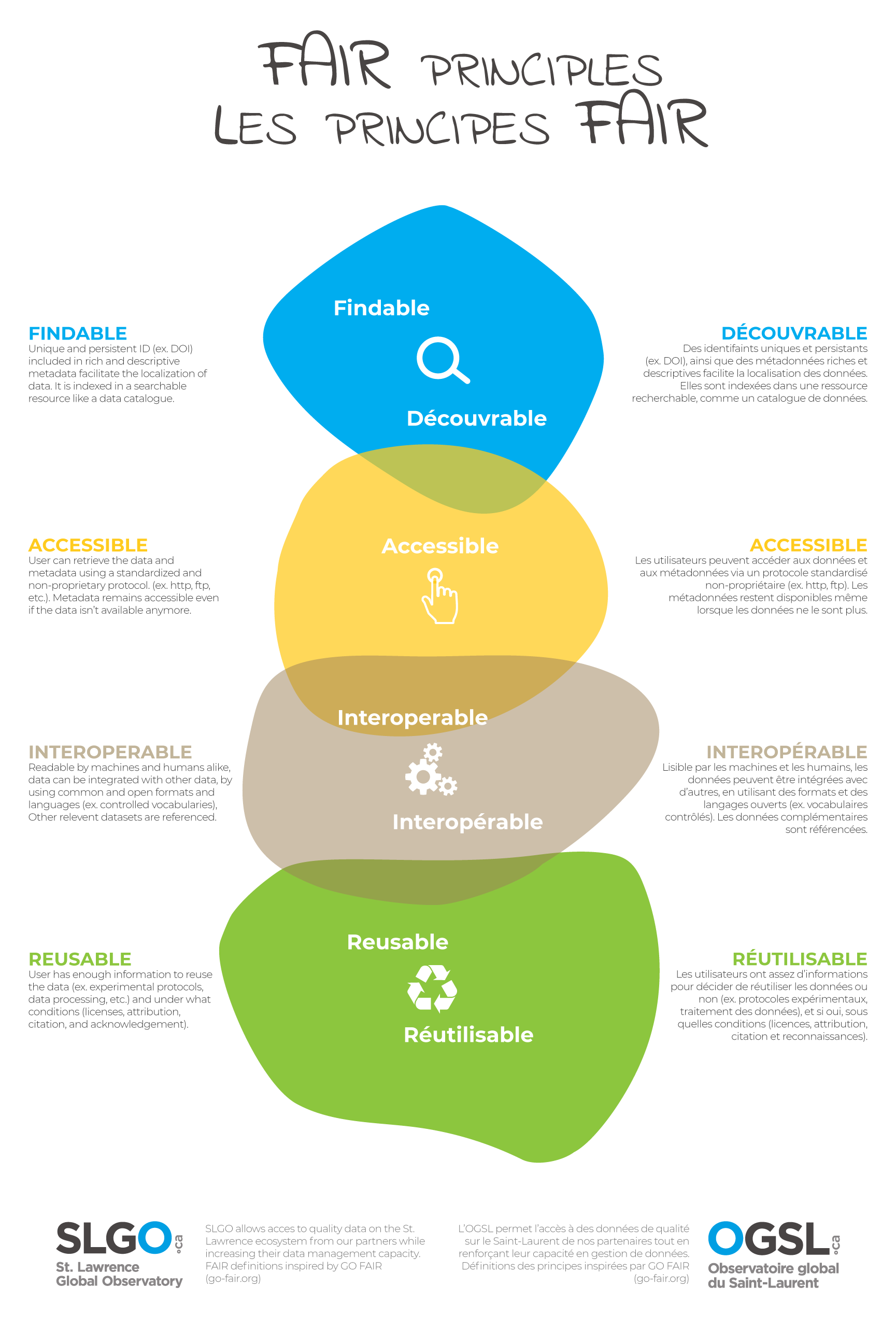FAIR Principles
 Large amounts of information are now available online and continue to be generated daily by an increasingly technological science. To ensure that data is always easily discoverable and accessible, some practices can be put in place to guide this process. The FAIR principles aim to make data discoverable, accessible, interoperable and reusable. These guidelines were defined during a workshop in Leiden, the Netherlands, in 2015.
Large amounts of information are now available online and continue to be generated daily by an increasingly technological science. To ensure that data is always easily discoverable and accessible, some practices can be put in place to guide this process. The FAIR principles aim to make data discoverable, accessible, interoperable and reusable. These guidelines were defined during a workshop in Leiden, the Netherlands, in 2015. Download the free printable poster of FAIR principles here:
(Optimal print size: 24″x26″)
Findable
Findable data can be ensured by defining a unique persistent identifier (e.g. DOI or URL), by following the data with rich metadata following recognized norms that itself includes the identifier, and finally, ensuring an indexed presence in both regional and international data discovery portals or search engines.
Accessible
Being accessible means that data can be easily obtained by humans as well as by machines, through well-defined and ideally standardized protocols. Access conditions must be clearly established (license, reuse rights, etc.). Even when the data is inaccessible, the metadata should remain so in a way that the dataset remains discoverable. The author of the dataset can then be reached for more information or for a data access request (for example, under specific conditions).
Interoperable
Interoperability makes it possible to integrate different data into a single interface, for example within the same web application. This can be achieved in a variety of ways, including: the use of a common programming language, the use of controlled vocabulary, as well as non-proprietary formats. The same efforts can be applied to metadata as well as references to other (meta)data.
Reusable
By having data and metadata following best practices, it is possible to optimize them for reuse. Data and metadata must be richly detailed, as well as user licenses. Any information specific to the field of interest of the data in question must be made available as well.
Sources:


